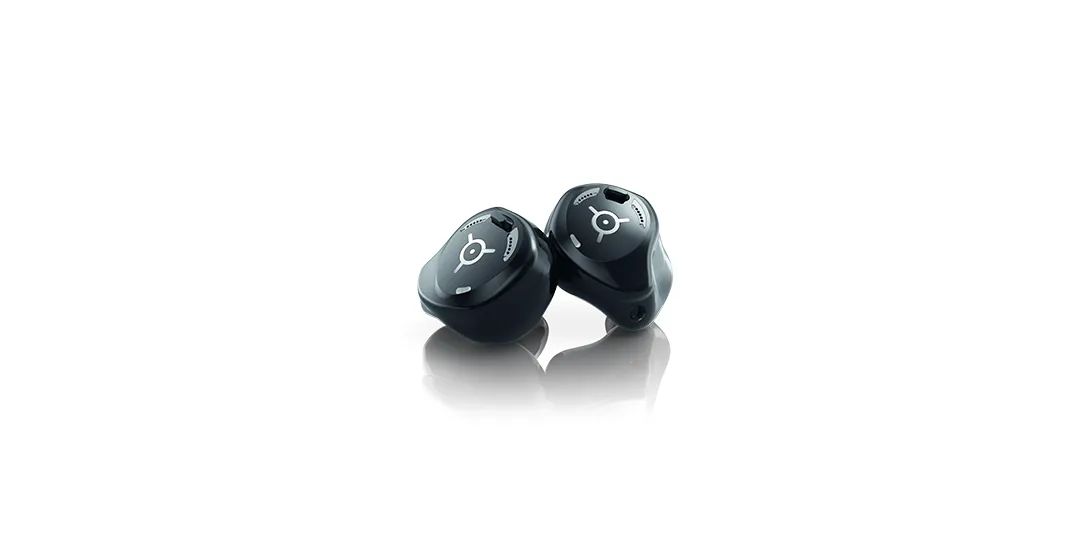5 common signs of deafness in dogs (and what you can do to help)

5 common signs of deafness in dogs (and what you can do to help)
5 min.
Publication Date: January 17, 2022
Article Updated: December 3, 2025
Hearing loss in dogs is more common than many people realize. Some breeds are genetically predisposed, while age, illness, loud environments, or chronic ear conditions can also play a role. And because dogs can’t tell us when something sounds different—or doesn’t sound at all—it often falls to pet owners to notice the early clues. The sooner you can spot changes, the easier it is to support your dog’s comfort, safety, and overall well‑being.
This guide walks you through the most common signs of hearing loss in dogs, explains what might be causing the change, and offers simple ways to help your dog adapt. With a few adjustments and plenty of patience, deaf or hard‑of‑hearing dogs can continue to live full, happy lives.
- What are the signs of deafness in dogs?
- What causes hearing loss in dogs?
- How is hearing loss diagnosed in dogs?
- How can you care for a deaf or hard-of-hearing dog?
- Final thoughts for dog owners
Note: Although we share your love of furry friends here at Connect Hearing, we do not provide veterinary care. If you believe your pet may be presenting with hearing loss, visit your local vet for diagnosis and treatment options.
What are the signs of deafness in dogs?
Hearing loss may come on gradually or appear suddenly depending on the underlying cause. Dogs are great at adapting to changes, which means early signs can be subtle. What looks like stubbornness or distraction could be your dog doing their best with less sound information than before.
1. Less responsiveness to commands or familiar sounds
If your dog stops reacting to noises they once recognized—like their name, squeaky toys, or the doorbell—it may be a sign their hearing is changing. You might also notice delayed reactions or confusion when you try to get their attention.
2. Easily startled when approached
When dogs can’t hear footsteps, voices, or environmental noise, they may be more jumpy, especially when approached from behind or while resting.
3. Excessive barking or vocalization changes
Dogs use sound to help regulate their own barking. When they can’t hear themselves as clearly, they may bark louder, more often, or with a different pitch.
4. Sleeping through loud noises
If your dog doesn’t wake to sounds that would normally alert them, such as visitors at the door or household activity, it may indicate a reduced ability to detect sound.
5. Behaviour changes mistaken for disobedience
A dog who seems confused, slow to respond, or less eager to follow commands may not be ignoring you. They may simply be unable to hear what’s being asked of them.
What causes hearing loss in dogs?
Hearing loss in dogs can develop for a variety of reasons, and understanding the underlying cause can help you better support your pet’s long‑term comfort and health. Some causes are completely natural, especially in older dogs, while others may require treatment to prevent discomfort or further hearing decline. Common causes include:
- Genetic or hereditary deafness: Particularly common in breeds such as Dalmatians, Australian cattle dogs, and English setters.
- Age-related hearing changes: The inner ear becomes less sensitive over time, especially to high‑frequency sounds.
- Chronic ear infections: Ongoing inflammation can damage the eardrum or middle‑ear structures.
- Exposure to loud noise: Fireworks, gunshots, or other sudden loud sounds may cause acute hearing damage.
- Ear canal blockages: Wax buildup, debris, or objects lodged deep in the ear can temporarily reduce hearing.
- Certain medications or illnesses: Some conditions affect the auditory nerves or overall ear health.
How is hearing loss diagnosed in dogs?
If you’ve noticed behaviours that suggest your dog isn’t hearing as well, a veterinarian can help determine what’s going on. They’ll start by examining the outer ear and ear canal for signs of infection, inflammation, or debris. Using an otoscope, they can look deeper inside the ear to assess the eardrum and surrounding structures.
Your vet may also observe how your dog responds to different sounds or perform simple communication tests. For a clear, definitive diagnosis—especially in cases of sudden or congenital hearing loss—a BAER (Brainstem Auditory Evoked Response) test is often recommended. This painless, non‑invasive test measures how the auditory pathways react to sound and is considered the gold standard for confirming deafness.
How can you care for a deaf or hard-of-hearing dog?
A dog with partial or complete hearing loss can absolutely live a joyful, active life. The key is adjusting how you communicate and keeping their environment predictable and safe.
- Use visual cues or hand signals as your main form of communication.
- Create gentle vibrations, like tapping the floor, to get their attention.
- Keep them on a leash outdoors, since they may not hear approaching cars or animals.
- Stick to consistent routines to help them feel secure.
- Use positive reinforcement as they learn new commands.
- Approach calmly and visibly so they’re less likely to be startled.
Final thoughts for dog owners
Deafness doesn’t diminish a dog’s ability to bond, learn, or enjoy life—it simply means they may need support in different ways. Recognizing early signs, working with your veterinarian, and adapting your communication style can help your dog stay safe, confident, and connected.
Key takeaways
Deafness in dogs can develop gradually or suddenly.
Behaviours like startling easily or ignoring commands may be a sign of hearing changes.
A veterinary exam, and sometimes a BAER test, can clarify the cause.
With patience and a few adjustments, deaf dogs can thrive.
If you’d like more guidance on hearing and communication, explore our blog or book a free hearing test—just remember that we provide care for humans only!



